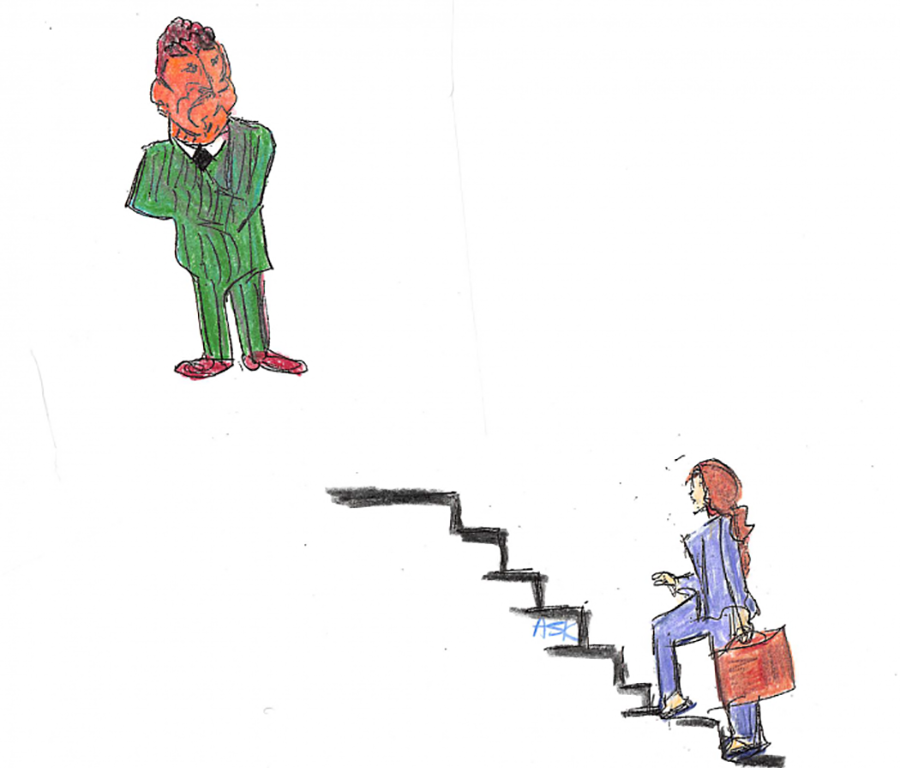
Negative Bias: When You’re Judged Just for Being a Woman at Work
We use stereotypes to simplify our thinking. Stereotypes allow us to ascribe characteristics to people based on one of their other characteristics. Thus we think we know what people are like — strong/weak, friend/foe, skilled/not skilled, and competent/incompetent — because of their sex, race, age, education, wealth, job, accent, dress, domestic situation, and so on. By classifying people in this way, we know the “sorts” of people with which we are dealing and how we should relate to them. That is not to say that our stereotypes reflect reality; they may or may not, but either way, they provide us with instantaneous “information” about what specific sorts of people are (maybe) like and how we (maybe) should behave toward them.
We have stereotypes about women and men that are based on no more than the fact that they are women and men. These stereotypes lead us to assign to the two sexes different physical, mental, and emotional characteristics. The traditional female stereotype is that women are (or should be) communal, that is, that they are (or should be) warm, pleasant, caregiving, gentle, modest, sensitive, and affectionate. The traditional male stereotype is that men are (or should be) agentic, that is, that they are (or should be) strong, forceful, aggressive, competent, competitive, and independent. Unfortunately, these traditional gender stereotypes operate in virtually all organizations in which women are pursuing careers. They slow, obstruct, and block women’s progress up a career ladder. Gender stereotypes in the workplace do this by fostering five distinct sorts of biases: (1) negative bias, (2) benevolent bias, (3) agentic bias, (4) self-limiting bias, and (5) motherhood bias. We discuss the operation of the negative biases in the remainder of this article.
What is negative bias?
A person holds negative stereotypes about women when he (or she) thinks a woman at work — simply because she is a woman — is (or should be) pleasant and likable but not particularly forceful, competent, or suited for high-pressure, competitive leadership tasks. A person who operates with such a negative stereotype bias consistently judges the women he (or she) works with to be less talented, less suited for challenging assignments, and less worthwhile to advise, supervise, or sponsor than similarly situated men. Such a person is not necessarily intentionally hostile to women or even knows that he (or she) is acting in discriminatory ways toward them. Undoubtedly, there are still some men with influence over women’s careers who are blatantly biased against women — the proverbial “male chauvinist pigs” — but by and large, gender stereotypes and their resulting biases are unconscious attitudes, tendencies, and expectations.
When most people are asked if they hold negative views of women’s talents and capacities, they inevitably answer, “of course not.” But psychological and sociological studies leave no doubt that most of us, to one degree or another, have implicit gender biases. Take, for example, a recent study that revealed that approximately 75 percent of people think “men” when they hear career-related words such as business, profession, and work, but think “women” when they hear domestic-related words such as family, household, and caregiving. Indeed, an overwhelming majority of people associate men with leader-related roles such as boss, CEO, and director, while they associate women with aide-related roles such as assistant, attendant, and secretary.
How negative stereotypes hold back women in the workplace
When the gatekeepers to your career advancement — your supervisors, senior managers, and the people in the C-suite of your organization — hold negative stereotypes about women, they are likely to have low expectations about your performance capability and potential. These negative stereotypes will lead them to believe that particular jobs require strong agentic characteristics, and you — simply because you are a woman at work — don’t have those characteristics. Never mind what your actual characteristics might be. These negative stereotypes operate to limit or otherwise obstruct your career advancement. They obscure your actual talents, ambition, and potential by ascribing to you stereotypical communal characteristics while denying to you agentic characteristics. It is as though these stereotypes are saying, “Damn reality, I will tell you what you should really believe about her abilities.”
Because of this stereotypical reaction, you are often held to a higher standard than are the men: to get ahead, you need to be better than the men, work harder than the men, succeed more obviously than the men. This double standard is consistent across industries and occupations. It’s not fair, but it is a fact of women’s career experience. But don’t lose heart. We have advice on how to deal with gender bias in the workplace, so you can achieve career success despite these negative stereotypes.
Learn how to recognize the five biases against women, including negative bias, in our article about gender stereotypes in the workplace.

